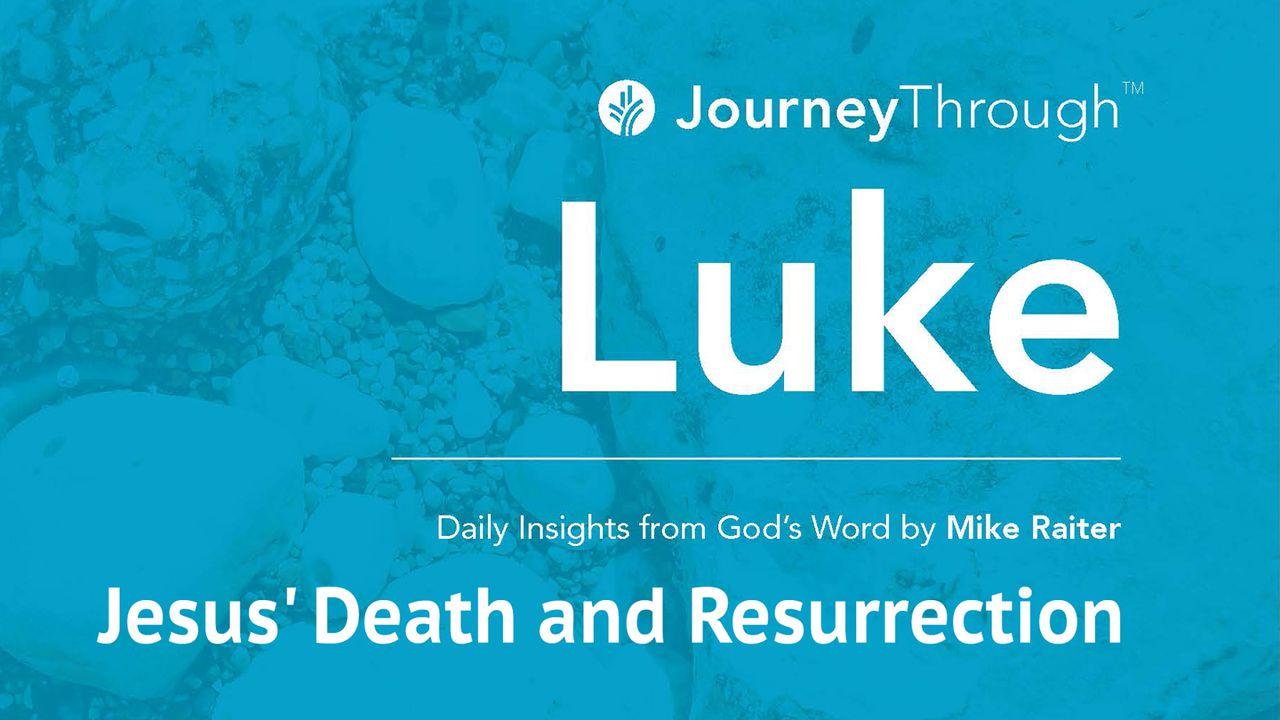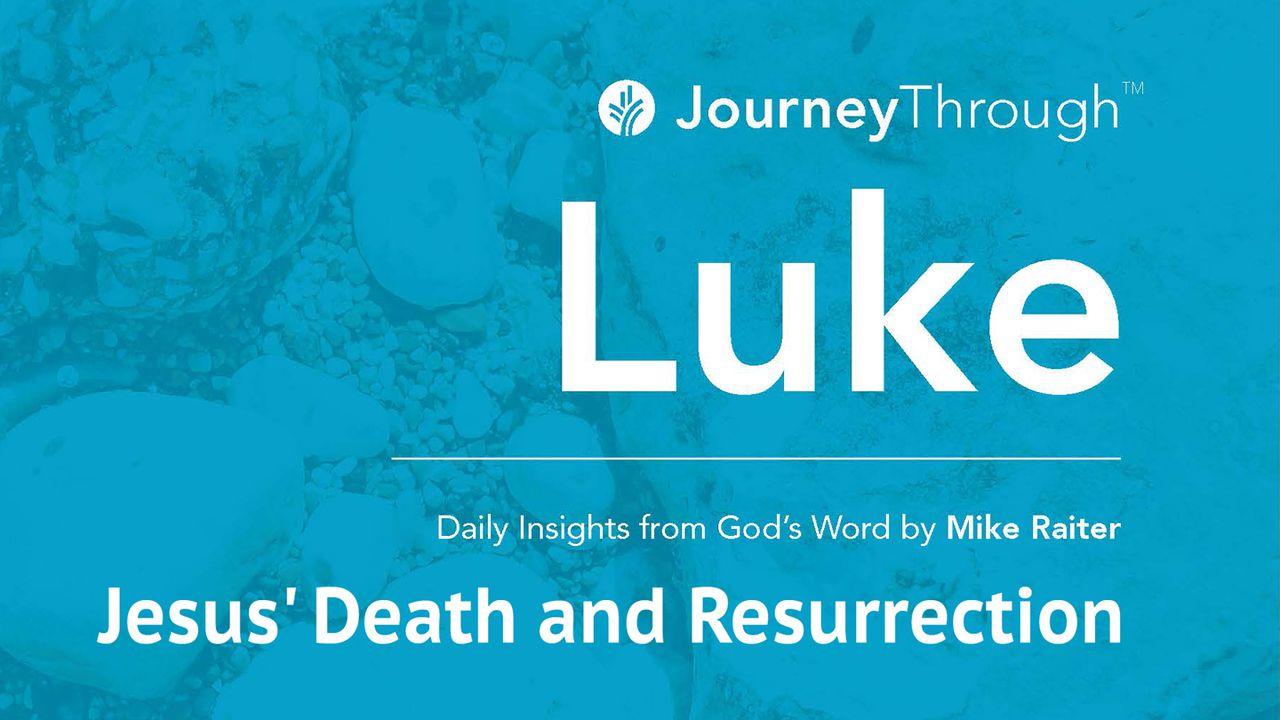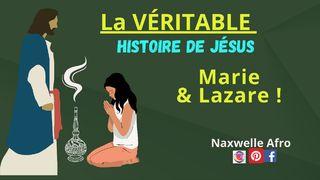Infos du plan
Journey Through Luke: Jesus' Death And ResurrectionExemple

Whose word can you trust? Today, many people have lost confidence in traditional authority figures like government and religion, and believe that the only person you can trust is yourself. The question of “authority” is the subject of the first verbal conflict between Jesus and the religious leaders in the Temple.
These leaders interrogate Jesus about His authority to do “these things” (v. 2). Jesus has claimed to forgive sins, to determine what happens on the Sabbath day, and to rule the Temple. Of course, only one person can declare forgiveness, determine God’s law, and announce the future of the Temple, and that is God himself. Cleansing the Temple and then teaching there (Luke 19:45–47) is the latest example of Jesus exerting His divine authority.
Jesus counters their question with a question about the origin and authority of John’s baptism (v. 4). The ministries of John and Jesus were intimately connected. John’s first work was to prepare the way for the Lord. He announced that Jesus was the Messiah. Therefore, to acknowledge John’s preaching was to submit to Jesus. This is why the leaders refuse to answer the question. They cannot deny John was sent from God, but they will not accept his testimony of Jesus.
Jesus then tells a confronting parable which summarises the historical relationship between faithless Israel and her faithful God (vv. 9–16). Isaiah 5 describes Israel as God’s vineyard, and therefore all the hearers would know who Jesus is talking about. Israel persistently rejected God’s prophets, and now they will kill His son.
Jesus concludes by announcing that God’s vineyard will be given to others (v. 16). This introduces the idea that the new vineyard will comprise both believing Jews and Gentiles. We see here, too, the depth of the hatred of the Jewish leaders. Even after having heard Jesus announce their certain judgment, they still refuse to believe.
While this parable speaks of God’s judgment on faithless Israel, it is also a story about God’s amazing grace. Again and again God sent prophets to call His people to turn back to Him. Finally, He gives the greatest gift of all, His Son. The Lord is slow to anger and abounding in love, not wanting anyone to perish (Psalm 103:8; 2 Peter 3:9). What an encouragement to us as we pray for family and friends to turn to Jesus.
Think Through:
Why do you think Jesus chooses not to give the Jewish leaders a direct answer to their question, but replies with a question of His own? Are there occasions when we should follow His example?
Read Isaiah 5:1–7. What does Jesus’ parable of the vineyard (vv. 9–16) tell us about God’s love for His people and their response to Him? What can we learn from this parable?
Écritures
À propos de ce plan

Journey through the book of Luke with Christian author Mike Raiter and meet our Lord Jesus. Read about Jesus' journey to the cross, His death and resurrection 3 days after! Be amazed at His authority over disease and dea...
More









